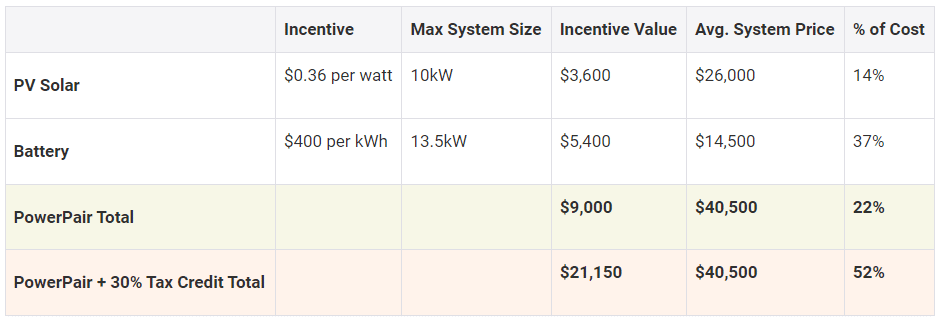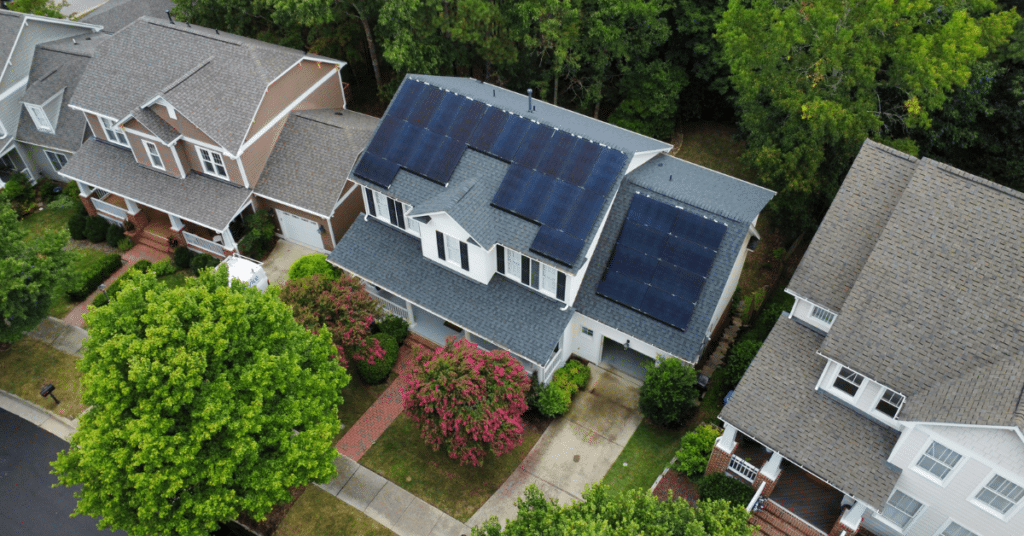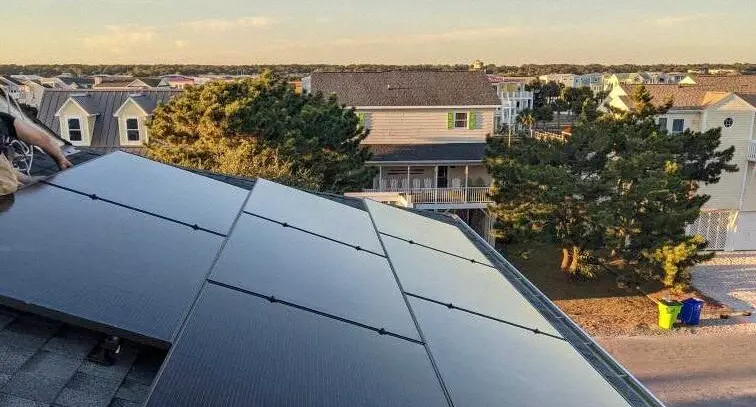Secure Your Spot — While It Lasts
Duke Energy’s PowerPair program offers North Carolina homeowners up to $9,000 in incentives for installing new solar panels paired with battery storage. It’s designed to strengthen the grid and boost clean energy use in North Carolina. But the program is nearing its capacity for Duke Energy Progress customers, and no one’s promising a sequel.
What is PowerPair?
Launched in May 2024, PowerPair is Duke Energy’s pilot incentive program that encourages homeowners to install solar and battery storage together. Why? To support a cleaner grid and help you save big on home energy upgrades.
- Solar incentive: $0.36 per watt (up to 10kW) – that’s up to $3,600
- Battery incentive: $400 per kWh (up to 13.5kWh) – that’s up to $5,400
- Combined? You’re looking at serious savings — and that’s before the 30% federal tax credit kicks in.
PowerPair Timeline
- January 2024: Program approved by the North Carolina Utilities Commission
- May 2024: Application window opened
- May 2025: Program nearing full capacity; no plans for extension announced
PowerPair Capacity — DEP vs. DEC
PowerPair is capped at 60,000 kW of installed solar capacity across Duke Energy Carolinas and Duke Energy Progress territories, equating to approximately 6,000–8,000 homes.
Duke Energy Progress (DEP)
We’re expecting the PowerPair rebate capacity for Duke Energy Progress customers to start filling up by this fall of 2025. If you’re in that service area, it’s a good idea to get your project rolling now so you don’t miss out. It can take a few weeks to get your solar design approved and your application submitted — so planning ahead really pays off.
Duke Energy Carolinas (DEC)
If you’re a Duke Energy Carolinas customer, good news — there’s still plenty of room left in the program. That said, now’s still a great time to move forward, especially if you want to lock in the 30% Federal Solar Tax Credit. With Congress heading into budget season, there’s always a bit of uncertainty around how long that credit will stick around.
PowerPair Incentive Summary

Eligibility Criteria
To qualify for the PowerPair incentive:
- You must be a Duke Energy customer in North Carolina
- Install a new solar + battery system (additions to existing systems are not eligible)
- Use a Duke Energy-approved Trade Ally for installation
- Submit a complete interconnection request before applying (our team will do that for you!)
- Maintain a reliable internet connection for system monitoring
What Qualifies as a “New” Solar + Battery System?
To qualify, you need to install both solar panels and battery storage at your current home — for the first time. Upgrades or add-ons to existing systems don’t count.
“The customer must be installing a complying solar generation and a battery storage system at the Premises for the first time.” (– Duke Energy Filing)
Already Have Solar or a Battery?
If you’re trying to bolt on a battery to your current solar setup (or vice versa), you won’t qualify for PowerPair — but you could still earn monthly bill credits through Duke Energy’s battery control programs:
- EnergyWise Home Battery (Duke Energy Progress customers)
- Power Manager (Duke Energy Carolinas customers)
These programs offer $26 to $91/month just for letting Duke use your battery during peak demand times. Not bad for a little grid teamwork.
Should You Get a Battery with Solar?
Short answer: Yes. And now more than ever.
With updated net metering policies and incentives like PowerPair, adding battery storage makes both economic and practical sense. It helps you:
- Offset peak energy rates
- Stay powered during outages
- And, yes, save thousands upfront
Installation + Application Process
- Choose a Trade Ally – Work with a Duke-approved installer (like us! 😉)
- System Design – We’ll handle your interconnection paperwork
- Submit the Application – Once we’re ready, you apply for PowerPair
- Wait for Approval – Duke reviews applications within 10 business days
- Install Your System – We install your solar + battery setup
- Start Saving – You get your rebate check and begin earning monthly incentives!
Choosing the Right Installer
You must work with a Duke Energy-approved Trade Ally, but that doesn’t mean you should pick just anyone.
We strongly recommend working with a local North Carolina solar installer who understands the nuances of state policies, permitting, and utility processes. As North Carolina’s first solar installer and the state’s first solar B Corp, we know the terrain — and we’ve stuck around long enough to see the fly-by-night solar companies come and go.
Choosing a local installer means:
- Faster, more personalized service
- Local job support
- A partner who is invested in the success of your system for the long haul
Still deciding? Here are 6 reasons why a North Carolina-based installer especially a B Corp) is the smart choice.
Ready to Start?
If you’re ready to future-proof your home and claim the best savings North Carolina’s seen on solar + storage, let’s talk. We’ll answer your questions, run the numbers, and help you secure your spot in PowerPair before it’s lights out. Click here to set up a time to chat!
















